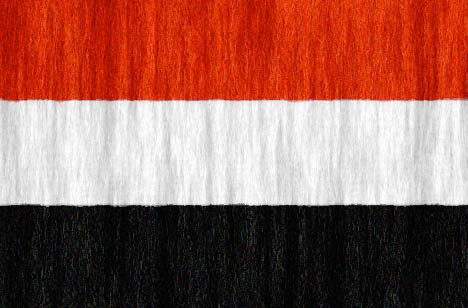Agencies
Hundreds rallied in Yemen’s capital yesterday, anniversary of the 2011 killing of 45 protesters against Ali Abdullah Saleh, demanding that the former president and aides be tried for their deaths.
On March 18, 2011, dubbed the “Friday of Dignity,” gunmen loyal to Saleh shot dead 45 protesters, most of them university students, and wounded another 200 in just three hours, according to figures compiled by Human Rights Watch.
This was at the beginning of a popular uprising against Saleh’s three-decade rule inspired by the so-called Arab Spring that had already swept rulers from power in Tunisia and Egypt.
After a year of protests and clashes between demonstrators and forces loyal to him, Saleh stepped down in February 2012 under a deal that granted him immunity from prosecution.
Holding up symbolic coffins, yesterday’s demonstrators chanted “no immunity for the killers” and “Saleh and his aides should be put on trial.”
The demonstration was organised by the Youth Revolutionary Council, one of the groups that led the year-long uprising against Saleh.
A statement read at the demonstration in Sanaa’s Change Square, the epicentre of the anti-regime protests, called for Attorney General Ahmed al-Awash, a Saleh appointee, to be sacked. They accuse him of covering up for the perpetrators of the attack.
Saleh is still head of his General People’s Congress party and his critics accuse him of trying to hamper the country’s political transition.
He only agreed to step down under the UN-backed deal, brokered by Gulf nations, which gave him and his aides immunity.
But youth groups have rejected that, and continue to stage rallies demanding justice.
In other developments, officials said rebels have begun withdrawing from positions they seized near the capital under a truce agreed with armed tribesmen allied with the influential Al-Islah party.
But some rebel fighters, known as Ansarullah or Huthis, are refusing to evacuate positions they won after months of deadly battles despite an ultimatum by the army, tribal and military sources say.
The army meanwhile has deployed to prevent those who have left from returning to their positions, the military says.
President Abdrabuh Mansur Hadi and Yemen’s main parties agreed last month to transform the unrest-riven country into a six-region federation as part of a political transition.

